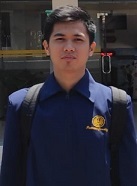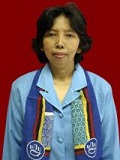Mobile learning student worksheet based on socio-scientific-issues: Enhancing students’ scientific literacy skills in biology
DOI:
https://doi.org/10.22219/jpbi.v6i1.11196Keywords:
mobile learning, scientific literacy, socio-scientific-issues, student worksheetAbstract
The 21st-century science and technology rapid development requires suitable educational tools to meet the expected learning outcomes desired. This study aimed at producing a mobile learning student worksheet based on Socio-Scientific-Issues (SSI) which is feasible to use in biology teaching activity as well as finding out its effectiveness in enhancing students' scientific literacy skills. This study research and development (R&D) used the ADDIE model. The effectiveness test of mobile learning student worksheet in enhancing students’ scientific literacy skills was done by using a one-group pretest-posttest design. The research findings indicated that the developed mobile learning student worksheet based on SSI is feasible to use in biology teaching activity and become the considerable tool in enhancing students’ scientific literacy skills based on the n-gain score of 0.75 (high category). Thus, it is suggested for science teachers, particularly biology teachers, to adopt this tool to support the learning activity they conduct.Downloads
References
Ardianto, A. D., & Priyono, B. (2014). Penerapan pembelajaran dengan praktikum pembuatan kompos terhadap karakter dan hasil belajar siswa. Unnes Journal of Biology Education, 3(3), 355–363. Retrieved from https://journal.unnes.ac.id/sju/index.php/ujbe/article/view/4536
Darmodjo, H., & Kaligis, J. R. E. (1992). Pendidikan IPA 2. Jakarta: Departemen Pendidikan dan Kebudayaan. Retrieved from http://library.fip.uny.ac.id/opac/index.php?p=show_detail&id=6604
Dewi, I. N., Ibrahim, M., Poedjiastoeti, S., Prahani, B. K., Setiawan, D., & Sumarjan, S. (2019). Effectiveness of local wisdom integrated (LWI) learning model to improve scientific communication skills of junior high school students in science learning. In Journal of Physics: Conference Series. IOP Publishing. doi: http://doi.org/10.1088/1742-6596/1157/2/022014
Dewi, I. N., Poedjiastoeti, S., & Prahani, B. K. (2017). ELSII learning model based local wisdom to improve students’ problem solving skills and scientific communication. International Journal of Education and Research, 5(1), 107–118. Retrieved from https://www.ijern.com/journal/2017/January-2017/09.pdf
Direktorat Pembinaan SMA. (2010). Juknis penyusunan perangkat penilaian afektif di SMA. Jakarta: Direktorat Pembinaan SMA. Retrieved from http://regulasi.sman1jember.sch.id/Peraturan Pemerintah & Menteri/Petunjuk Teknis dan Pedoman/31. Juknis Penilaian Afektif__ISI-Revisi__1111.pdf
Dwianto, A., Wilujeng, I., Prasetyo, Z. K., & Suryadarma, I. G. P. (2017). The development of science domain based learning tool which is integrated with local wisdom to improve science process skill and scientific attitude. Jurnal Pendidikan IPA Indonesia. doi: http://doi.org/10.15294/jpii.v6i1.7205
Ghani, I. B. A., Ibrahim, N. H., Yahaya, N. A., & Surif, J. (2017). Enhancing students’ HOTS in laboratory educational activity by using concept map as an alternative assessment tool. Chemistry Education Research and Practice, 18(4), 849–874. doi: http://doi.org/10.1039/c7rp00120g
Griffin, P., & Care, E. (2015). Assessment and teaching of 21st century skills. London: Springer Dordrecht Heidelberg. doi: http://doi.org/10.1007/978-94-017-9395-7
Hake, R. R. (1999). Analyzing change/gain scores. Bloomington, USA: American Educational Research Association’s Division D, Measurement and Research Methodology. Retrieved from https://www.physics.indiana.edu/~sdi/AnalyzingChange-Gain.pdf
Hakkarainen, K., Paavola, S., Kangas, K., & Seitamaa-Hakkarainen, P. (2015). Sociocultural perspectives on collaborative learning. The International Handbook of Collaborative Learning. London: Routledge. doi: http://doi.org/10.4324/9780203837290.ch3
Heong, Y. M., Yunos, J. M., Othman, W., Hassan, R., Tee, T. K., & Mohamad, M. M. (2012). The needs analysis of learning higher order thinking skills for generating ideas. Procedia - Social and Behavioral Sciences, (59), 197–203. doi: http://doi.org/10.1016/j.sbspro.2012.09.265
Huang, Y. M., Liao, Y. W., Huang, S. H., & Chen, H. C. (2013). A jigsaw-based cooperative learning approach to improve learning outcomes for mobile situated learning. Educational Technology and Society, 17(1), 128–140. Retrieved from https://www.jstor.org/stable/jeductechsoci.17.1.128?seq=1#metadata_info_tab_contents
Hwang, G. J., & Chang, H. F. (2011). A formative assessment-based mobile learning approach to improving the learning attitudes and achievements of students. Computers and Education, 56(4), 1023–1031. doi: http://doi.org/10.1016/j.compedu.2010.12.002
Ismail, I., Permanasari, A., & Setiawan, W. (2016). STEM virtual lab: an alternative practical media to enhance student’s scientific literacy. Jurnal Pendidikan IPA Indonesia, 5(2), 239–246. doi: http://doi.org/10.15294/jpii.v5i2.5492
Kemendikbud, T. G. (2017). Panduan gerakan literasi nasional. (L. A. Myani, Ed.). Jakarta: Kementrian Pendidikan dan Kebudayaan. Retrieved from https://gln.kemdikbud.go.id/glnsite/wp-content/uploads/2017/08/panduan-gln.pdf
Laugksch, R. (2000). Scientific literacy: A conceptual overview. Science Education, 84(1). doi: http://doi.org/10.1002/(SICI)1098-237X(200001)84
Lin, S., Lin, H., Lee, L., & Yore, L. D. (2014). Are science comics a good medium for science communication? The case for public learning of nanotechnology. International Journal of Science Education, (May 2015), 37–41. doi: http://doi.org/10.1080/21548455.2014.941040
Liu, E. Z. F., Lin, C. H., Jian, P. H., & Liou, P. Y. (2012). The dynamics of motivation and learning strategy in a creativity-supporting learning environment in higher education. Turkish Online Journal of Educational Technology, 11(1), 172–180. Retrieved from http://tojet.net/articles/v11i1/11116.pdf
Mehdipour, Y., & Zerehkafi, H. (2013). Mobile learning for education: benefits and challenges. International Journal of Computational Engineering Research, 3(6), 93–101. doi: http://doi.org/10.1080/87567555.2011.604802
Montrieux, H., Vanderlinde, R., Schellens, T., & De Marez, L. (2015). Teaching and learning with mobile technology: A qualitative explorative study about the introduction of tablet devices in secondary education. PLoS ONE, 10(12), 1–17. doi: http://doi.org/10.1371/journal.pone.0144008
Nuangchalerm, P. (2010). Engaging students to perceive nature of science through Socioscientific Issues-Based Instruction. European Journal of Social Sciences, 13(1), 34–37. Retrieved from https://files.eric.ed.gov/fulltext/ED508531.pdf
OECD. (2015). OECD Economic surveys: Brazil November 2015. Oecd. doi: http://doi.org/10.1787/eco_surveys-jpn-2009-en
OECD. (2019). PISA 2018 insight and interpretations. OECD. Retrieved from https://www.oecd.org/pisa/PISA 2018 Insights and Interpretations FINAL PDF.pdf
Presley, M. L., Sickel, A. J., Muslu, N., Johnson, D. M., Witzig, S. B., Izci, K., & Sadler, T. D. (2013). A framework for socio-scientific issues based education. Science Educator, 22(1). Retrieved from https://files.eric.ed.gov/fulltext/EJ1062183.pdf
Rohmawati, E., Widodo, W., & Agustini, R. (2018). Membangun kemampuan literasi sains siswa melalui pembelajaran berkonteks Socio-Scientific Issues berbantuan media weblog. Jurnal Penelitian Pendidikan IPA (JPPIPA), 3(1). doi: http://doi.org/10.26740/jppipa.v3n1.p8-14
Rundgren, Chang, S.-N., Rundgren, & Johan, C. (2010). SEE-SEP: From a separate to a holistic view of socio-scientific issues. Asia-Pacific Forum on Science Learning and Teaching, 11(1), 1–24. Retrieved from http://journaldatabase.info/articles/see-sep_from_separate_holistic_view.html
Sadler, T. D., & Zeidler, D. L. (2004). The morality of socioscientific issues: Construal and resolution of genetic engineering dilemmas. Science Education, 88(1), 4–27.doi: http://doi.org/10.1002/sce.10101
Wishart, J. (2015). Assimilate or accommodate? The need to rethink current use of the term “Mobile learning.” In IThe Mobile Learning Voyage - From Small Ripples to Massive Open Waters (pp. 229–238). Springer, Cham. doi: http://doi.org/10.1007/978-3-319-25684-9_17
Yuen Fook, C., & Nazamud-Din, A. (2017). Strategies to enhance assignment and feedback practices in the 21st century classroom: a case study. Pertanika J. Soc. Sci. & Hum, 25, 155–166. Retrieved from http://www.pertanika.upm.edu.my/Pertanika PAPERS/JSSH Vol. 25 (S) Jan. 2017/15 JSSH(S)-0316-2016-4thProof.pdf
Zeidler, D. L., Sadler, T. D., Applebaum, S., & Callahan, B. E. (2008). Advancing reflective judgment through socioscientific issues. JRST, 46(1), 74–101. doi: http://doi.org/10.1002/tea.20281
Downloads
Published
Issue
Section
License
Authors who publish with JPBI (Jurnal Pendidikan Biologi Indonesia) agree to the following terms:
- For all articles published in JPBI, copyright is retained by the authors. Authors give permission to the publisher to announce the work with conditions. When the manuscript is accepted for publication, the authors agree to automatic transfer of the publishing right to the publisher.
- Authors retain copyright and grant the journal right of first publication with the work simultaneously licensed under a Creative Commons Attribution-ShareAlike 4.0 International License that allows others to share the work with an acknowledgment of the work's authorship and initial publication in this journal.
- Authors are able to enter into separate, additional contractual arrangements for the non-exclusive distribution of the journal's published version of the work (e.g., post it to an institutional repository or publish it in a book), with an acknowledgment of its initial publication in this journal.
- Authors are permitted and encouraged to post their work online (e.g., in institutional repositories or on their website) prior to and during the submission process, as it can lead to productive exchanges, as well as earlier and greater citation of published work (See The Effect of Open Access).

This work is licensed under a Creative Commons Attribution-ShareAlike 4.0 International License.




















